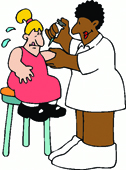Swine Flu Drug Really ‘No Better Than Aspirin’?
By Mark O’Brien
In an article published in the Public Library of Science journal, The Imperative to Share Clinical Study Reports: Recommendations from the Tamiflu Experience published April 10, 2012, researchers have recommended that pharmaceutical companies be forced to make total data from clinical trials publicly available so risks, costs and benefits of their products can be assessed independantly.
This is in response to research into Tamiflu, the Swine flu vaccination that the Australian Government stockpiled in 2009 (at a cost of $179 million) that showed that there was insufficient evidence that it had any preventative effect.
Professor Del Mar, from the Centre for Research in Evidence-Based Practice at Bond University, Queensland, was involved in a review of Tamiflu earlier in 2012 which concluded that while Tamiflu did reduce symptoms, there was no evidence to suggest Tamiflu reduced influenza complications and hospitalisations.
“All the data we’ve seen so far suggests it’s no better than aspirin. It could be, but we don’t have the data to say so,” Professor Del Mar said.
Professor Del Mar also said there is insufficient data to tell if Tamiflu is successful in either preventing influence or stopping transmission.
He goes on to say that there was far better evidence that hand washing, gloves and masks stopped transmission and infection.
Professor Del Mar said it took more than two years to get only a fraction of the trial data from Tamiflu manufacturer Roche’s clinical trials, with FOI requests and leaked documents supplementing the information enough for a study to be made.
Two years seems to be an awful long time for a business supposedly acting in the common good to provide data regarding the safety of its product. One wonders if the same leeway would be given to herbal products and how the media would respond to that!
A spokeswoman for the Therapeutic Goods Administration says the TGA approves Tamiflu in Australia for the treatment and prevention of influenza but is yet to see the full data on the drug’s effect on influenza complications and transmission.
“The TGA expects full study reports containing study protocol, reporting analysis plan, statistical analysis plan and individual patient data to clarify outstanding issues. These full clinical study reports are at present unavailable to us.”
Which is direct contradiction to Roche’s claim that they made all date available to the TGA.
Along with the general public who have been recommended to have the vaccine by the various state and Federal health departments, various health workers such as midwifery nurses are subject to mandatory Tamiflu vaccinations if they wish to be in contact with babies, often with severe reactions.
[The author’s sister, a hospital employed midwife, was given no choice about having the Tamiflu vaccine if she wanted to continue to work in the midwifery ward, and says that she was very ill for three weeks after the vaccination.
As someone who has averaged less than two days sick leave a year over her 35 year-career working in a hospital environment, this is quite significant.
She was also unable to take time off, so in a case of perversity of outcomes, she worked in the midwifery ward sick with Swine flu that she contracted via the vaccination! And she said hers was not an isolated case.]
11/4/2012
See also on this website
Swine Flue Exposed
Swine Flu, Real or a scam?
Flu Vaccine Increases risk of Swine Flu
Swine flu drug useless?
Beware Swine Flu Vaccinations
Leave your comment about this Swine Flu Drug Really ‘No Better Than Aspirin’? below or share with your friends on Facebook

While the issues with Tamiflu are important, please note that it is NOT a vaccine! Tamiflu is an antiviral agent that is meant to act directly on the influenza virus, not an agent meant to stimulate the body’s immune system. One of the issues that is emerging is that the side-effects from taking Tamiflu (particularly nausea!) have been strongly downplayed by the company that markets the drug.
Tamiflu, a synthetic drug, contains no virus or viral components at all and cannot cause influenza. But it might make you feel rather sick!
Hi Craig. Well it has been marketed and sold as a vaccine, and the medical researchers refer to it as vaccine so maybe it is just semantics.
cheers